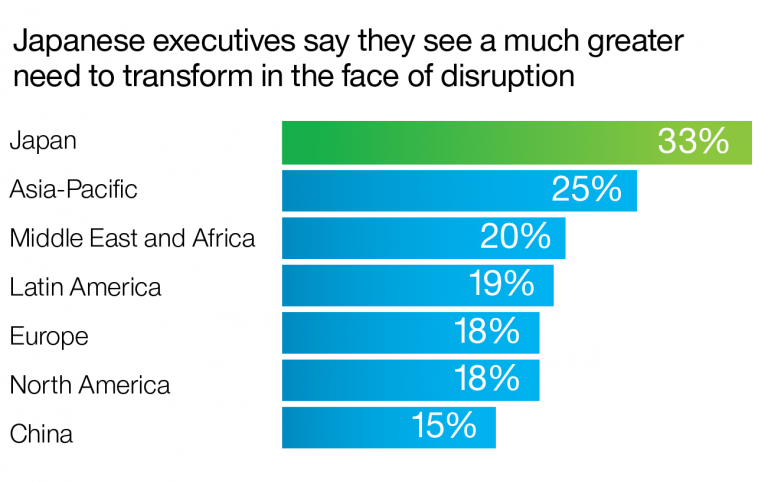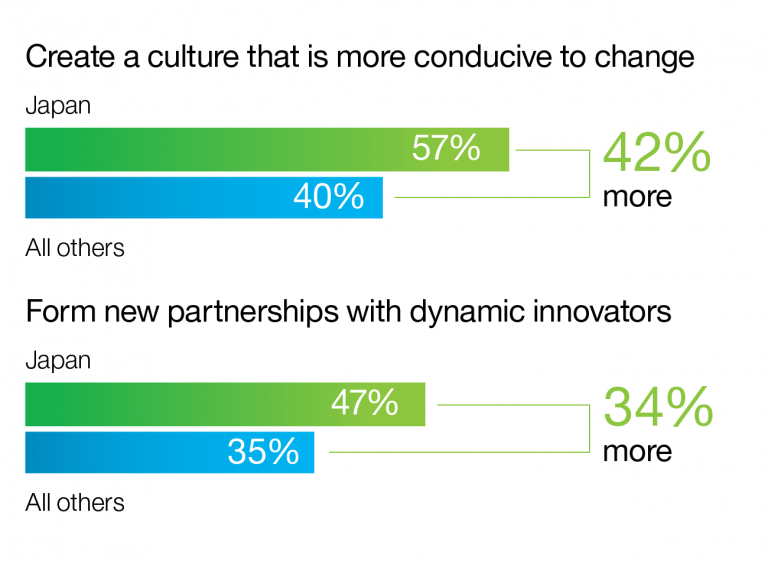Nearly half of the more than 7,000 executives we’ve surveyed so far for the IBM Global C-suite Study report little to no disruption in their industries. At first, this finding surprised us.
Now, we have a possible explanation for it: Some regions seem to be more affected by disruption than others.
If you operate mainly in the Middle East or Africa, chances are you agree the situation is relatively calm. Turning to Europe, the Americas and China, the anxiety level increases slightly. Running an enterprise in other Asia-Pacific countries, and especially Japan, seems to be much more challenging. Why do organizations in some regions report a higher level of disruption than others?
Disruption is triggered by a variety of external factors outside the direct influence of an organization. These factors can be more prevalent in some areas than others. On average (across all regions), executives say industry convergence continues to be the top factor driving the need for a change in strategy. In most countries, the rise of alternative payment options ranks a close second. But respondents in Japan, for example, indicate that shifts in consumer demographics represent an equally important trend that will influence their future strategic direction.
Economists recognize the demographic challenges that Japan is facing, particularly the country’s rapidly aging population and drastically decreasing level of consumer spending. It comes as no surprise that, while other regions seem to cope well, Japanese executives are twice as likely to say their customer base is shrinking. In response, one-third of Japanese organizations express an urgent need to transform in the face of disruption. This reflects significantly different behavior from the inertia expressed by executives in our previous blog.

Japanese executives say they have been very successful at managing change in the past – more so than those in other regions. Yet they are not as prepared for change today. Only one-third of Japanese executives say they have a clear strategy in place to deal with the anticipated level of disruption. Globally, 44 percent of executives say they have a well-defined, formal business strategy.
But there is room for optimism. Many CEOs in Japan say they foresee a bright future. More than half say they are planning for an organizational culture that is more conducive to change, and five in ten say they want to build new partnerships to draw out genuine innovations. Innovation may prove to be the best response to disruption.

It’s clear that executives in some regions are planning to put a business strategy and culture in place that will pave the way to transformation. Why aren’t others pressured to do the same? We’ll continue to explore business leaders’ responses to change in our future blogs and reports. Stay tuned!
This blog is part of a monthly series that highlights preliminary findings and emerging trends from our 19th Global C-suite Study. The study features interviews with more than 10,000 CxOs.
Meet the author


